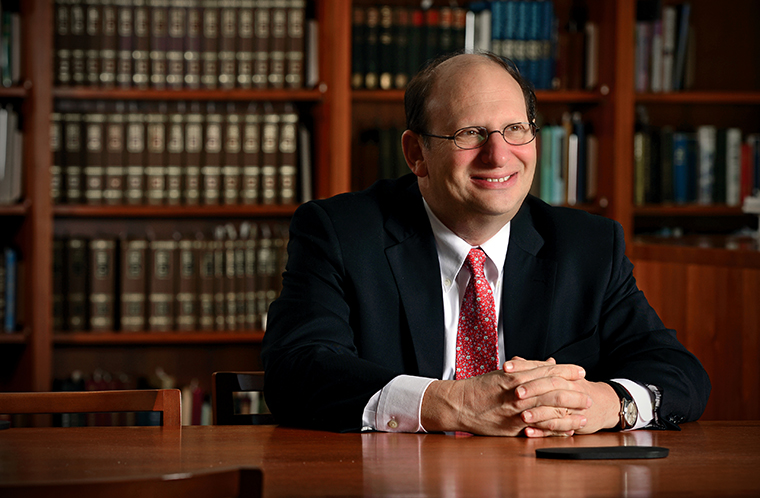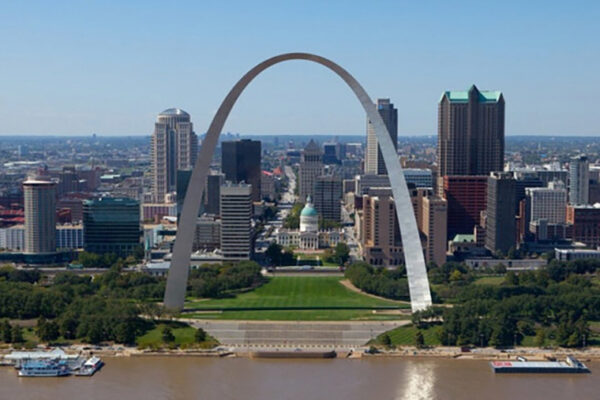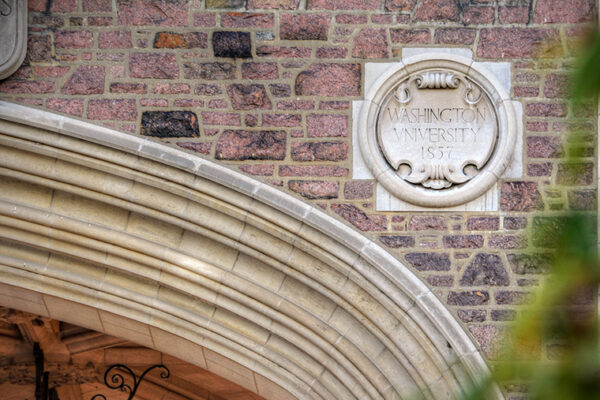
Henry S. Webber, executive vice chancellor for civic affairs and strategic planning at Washington University in St. Louis, will leave the university at the end of 2021, according to Chancellor Andrew D. Martin. Webber will conclude his administrative position Oct. 31 and will remain teaching at the university through Dec. 31.
“Hank Webber is an insightful, dedicated and energetic leader who has brought a wealth of experience and expertise — as a practitioner and educator — to his work at Washington University and in the greater St. Louis region,” Martin said. “He has been a driving force behind a number of high-impact projects on our campus and in our community, perhaps most notably the transformation of the east end of our Danforth Campus, our efforts in sustainability and reduction of energy consumption on our campuses, and his work in growing the Cortex Innovation District to international prominence.
“I’m grateful to Hank for his numerous contributions, which will have an enduring impact on our institution. He has played an integral role in laying a strong foundation for our commitment to being ‘in St. Louis and for St. Louis,’ and we are better as an institution thanks to the time he has spent here. I wish him all the best as he begins his next chapter.”
Webber has served since September 2020 in his current role, with primary responsibility for university initiatives and units focused on the St. Louis community and university planning, including the Office of the University Architect and Planner; the Academy for Diversity, Equity, and Inclusion; Edison Theatre; the Institute for School Partnership; the university ombudsperson; real estate operations and development; capital projects; sustainability; and the Washington University Police Department. He previously served as the university’s executive vice chancellor and chief administrative officer, a position he had held since 2008.
Webber was a driving force behind the East End Transformation project, which was dedicated in 2019 and reimagined 18 acres of the Danforth Campus, adding five new buildings, expanding the university’s world-class Mildred Lane Kemper Art Museum, relocating hundreds of surface parking spaces underground, and creating the new Ann and Andrew Tisch Park, an expansive green space that offers pedestrian and bicycle access into and across the Danforth Campus. The project was recognized with a “Building St. Louis” award from the St. Louis Business Journal earlier this year, and was featured on the cover of Architect magazine in February 2020, among other accolades. He also led the development of $1.5 billion in other university facilities including Knight-Bauer Hall, the Lofts of Washington University on the Delmar Loop, Hillman Hall and a complete renovation of university graduate housing.
Under Webber’s leadership, the university’s campuses became greener and more energy-efficient, reducing greenhouse gas emission to nearly pre-1990 levels, despite doubling the size of the physical campus since that time. During his tenure, eight buildings on the Danforth Campus — including four on the east end — have achieved LEED Platinum status, and the university has increased its commitment to solar energy, installing new panels both on campus and throughout the community by sponsoring programs such as Grow Solar STL.
Webber has served as board chair of the Cortex Innovation District since 2017 after six years as vice chair. During his leadership tenure, Cortex has emerged as a national model in building an urban innovation community with over $2 billion in investment, 430 companies, 2 million square feet of development, and 6,200 full-time jobs. A recent report co-authored by urban expert Bruce Katz described Cortex as a national model for an anchor-led inclusive innovation district.
“It’s been one of the greatest pleasures of my life and career to contribute to Washington University and to the St. Louis region. I’m extremely proud of what we have accomplished together,” Webber said. “We have arrived at a moment when the planning for our St. Louis initiative is nearing its completion and we are poised to move our strategic efforts and our partnerships in the region forward in some exciting ways. It is time to turn over leadership to someone who will approach this opportunity with a fresh perspective for the work that lies ahead. I plan to take time to consult on community development issues and get back to work on a delayed book project on the challenges of older industrial cities.”
Webber, who also is a professor of practice at the Brown School and the Sam Fox School of Design & Visual Arts, is a nationally recognized expert in community engagement and development. As a faculty member, he has taught courses on topics including urban development, health policy, strategic management and social welfare policy. His research has centered around community development, mixed-income housing, racial and income segregation and the role of anchor institutions in urban communities.
He has served on several nonprofit boards in the St. Louis region, including as chair of the Cortex board. He also serves as chair of the board of the Washington University Medical Center Redevelopment Corp. and Invest STL, the St. Louis regional community-development initiative. He is on the boards of directors of Forest Park Forever, Provident, RISE, the St. Louis Shakespeare Festival and the Jewish Federation of St. Louis. He previously served on the board of directors of Shorebank, the largest community development bank in the United States.
“Hank Webber has made many outstanding contributions during his time at Washington University,” said Chancellor Emeritus Mark S. Wrighton, with whom Webber worked closely during 11 years of his tenure. “He is a dynamic and effective leader with great passion for his work and the causes he champions, and, above all, for the people who serve alongside him, both at the university and in the larger community.
“Hank made important contributions to educational programs, facilities, administrative activities and to our community, including his work with Cortex. He has left an indelible mark on the university and the region, and he should be proud of his many achievements during his time here. It has been a privilege to work with him. I have no doubt he will find new and meaningful ways to bring his talents to bear in his future endeavors. I wish him continued great success in all he does.”
Prior to his appointment at Washington University, Webber spent 21 years at the University of Chicago, including as vice president for community and government affairs. Under his guidance, the University of Chicago’s community affairs program was recognized in a national study as one of the dozen strongest programs in the United States. A graduate of Brown University, he earned a master’s degree in public policy from Harvard University’s John F. Kennedy School of Government.
“We’re grateful to Hank for his years of service to the university, and also focused on the future, including, importantly, our ongoing commitment to the St. Louis region,” Martin added. “We will give careful thought to how best to proceed with framing and filling a leadership role that is focused on these efforts. Our role in St. Louis remains one of our highest priorities, and we will not lose our momentum. I look forward to working with our regional partners to determine our best path forward, and to implementing the components of our St. Louis initiative in the months and years ahead.”


